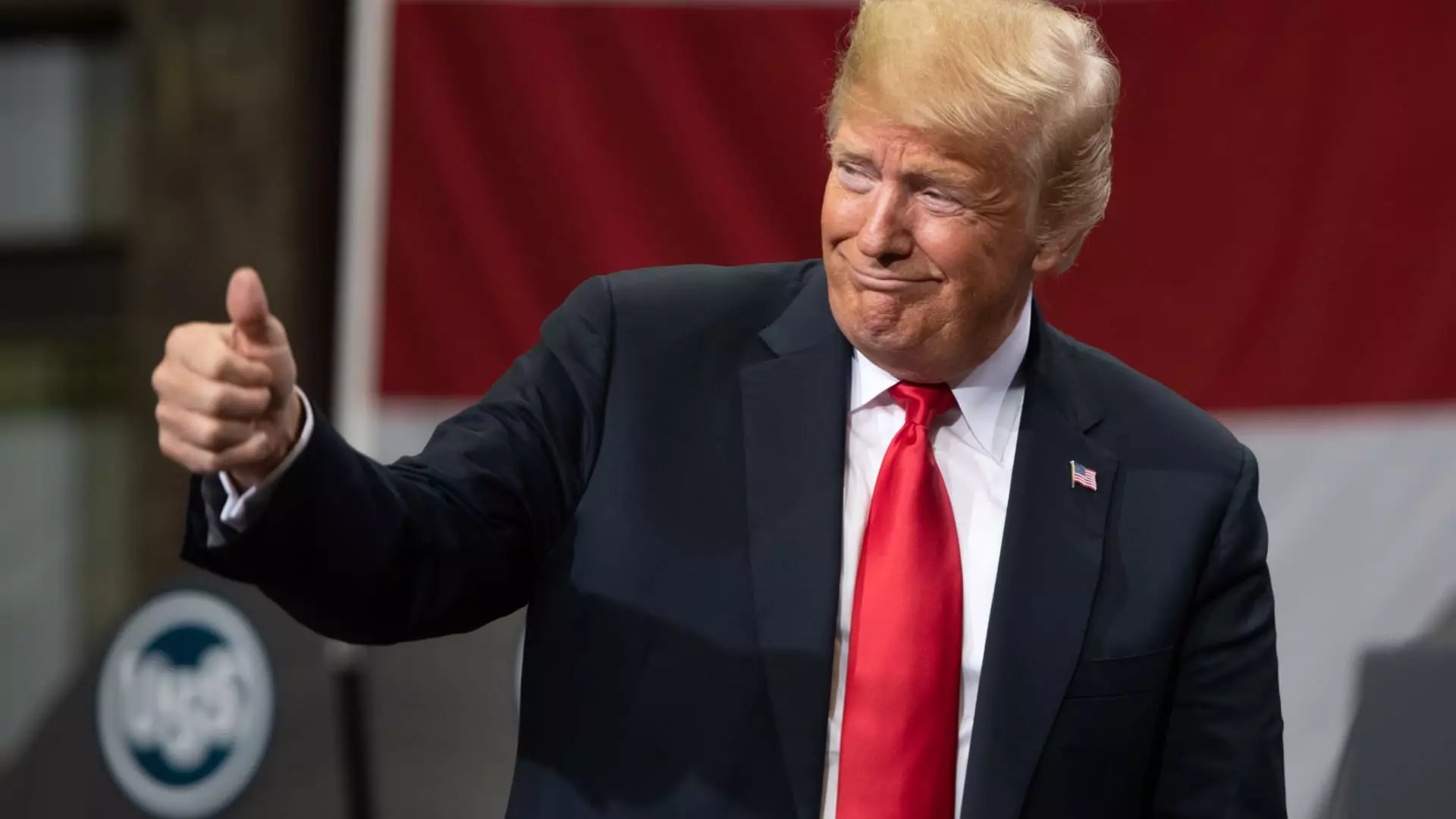In a world shaped by market volatility and unexpected political announcements, no event illustrates this more starkly than President Donald Trump’s recent tweet urging people to invest in the stock market. “THIS IS A GREAT TIME TO BUY!!!” he proclaimed on Truth Social, catching investors off guard— or so they thought. Here lies the sordid intersection of politics and market behavior, where a simple post could send ripples across the financial landscape.
The timing of Trump’s statement couldn’t have been more ironic, as he had just introduced a slew of tariffs that had sent equities tumbling. Investors who heeded Trump’s tweet and bought stocks at that moment enjoyed a remarkable turnaround just hours later. Is this turn of events a mere stroke of luck, or a reflection of something deeper—a concerning manipulation at play?
The Instant Gratification of Stock Trading
The allure of immediate financial gratification is potent, energetically propelled by statements like Trump’s. For stocks like the SPDR S&P 500 ETF and Trump Media & Technology, the gains were staggering. Those who invested at 9:37 AM could pat themselves on the back as stocks shot up by double-digit percentages. For those willing to ride the wave, a $1,000 investment could yield a return nearly as high as $1,222 within hours.
But this type of trading creates an unsettling atmosphere—one characterized less by genuine financial insight and more by impulsive decision-making. Stock trading becomes less an exercise in research and more a frantic race influenced by the whims of political figures. The rush to make quick gains overshadows the reasoned analysis that should be the bedrock of sound investment practices. Herein lies a troubling question: Are we valuing political proclamations over long-term investment strategies?
The Shadow of Manipulation
Critics of this behavior argue it borders on market manipulation. When key political figures like Trump leverage social media to sway investors’ sentiments, the risk of exploitation emerges. This creates a system where insider information and unregulated opinions masquerade as legitimate trading advice, blurring ethical lines. The discontent voiced on platforms like Reddit’s WallStreetBets suggests a growing unease among investors who fear their market actions are based on erratic tweets rather than sound financial fundamentals.
One user even labeled themselves “psychic” for anticipating and profiting from the volatility, while others expressed skepticism about the ethical implications of such political interference. Insinuations of insider trading are rampant. When the market is susceptible to whims, how can any average investor navigate this treacherous terrain without peril?
Investing: A Game or a True Endeavor?
The current state of the stock market presents a troubling dichotomy. For seasoned investors, investing should be a careful analysis of market trends and underlying data. However, for many, it has devolved into a game driven by tweets, memes, and viral trends that render any semblance of a rational strategy obsolete. With figures such as Trump wielding such power over stock prices, the question arises: Is investing less an informed process and more an unpredictable gamble?
As we witness the stock market’s often irrational swings influenced by social media, the need for educational reforms becomes increasingly apparent. Investors need tools and resources to distinguish between legitimate market signals and noise generated by erratic political discourse. Unfortunately, the allure of quick returns often blinds individuals to a reality that requires serious attention to detail.
The Financial Equity Gap
Ultimately, the consequences of this manic trading scene extend beyond individual investors; they exacerbate the underlying issues of economic inequality. Those who can decode political posturing and act quickly often outperform traditional investors, leading to an environment where the wealth gap may widen further. This isn’t merely a matter of profit and loss; it’s a lens into wider socioeconomic disparities that threaten to undermine the fabric of financial equity in America.
In this new landscape, we must question who benefits from this volatile dance between politics and stocks. Is it the average working-class American hoping to save for retirement, or rather the affluent few who can maneuver the market’s ebbs and flows at their leisure? As long as political influence continues to intertwine with market performance, a balanced and ethical trading environment remains at risk. It’s high time we address the marionette strings that connect politics and profit, lest we lose integrity in investing entirely.

